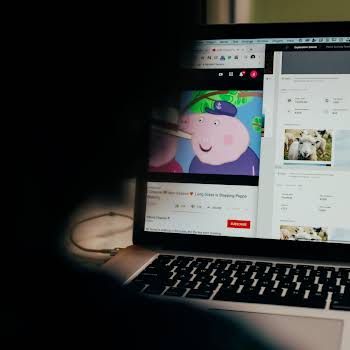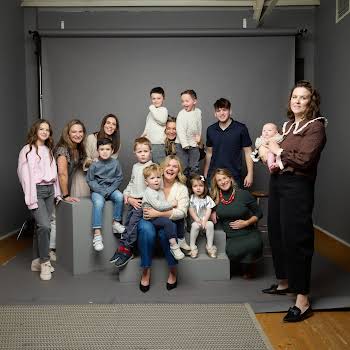
Sponsored
How working mothers are changing the workplace
Sponsored By

By Edaein OConnell
14th Apr 2025
14th Apr 2025
Sponsored By

Mothers are shaping our workplace environments in a myriad of ways from fighting for flexible working conditions to more inclusive organisations – here is why we should sit up and listen.
Where would this world be without mothers?
What would our society look like? Mothers are, quite literally, the life force of this earth. Rearing children into the next generation of adults is no easy task, and they do it with a wilfulness that is almost otherworldly.
Sometimes, these efforts can come without thanks from the world at large but the fight to recognise the contribution of mothers not just in the home but in the workplace is growing in strength and power. Not only is this battle for visibility intensifying, but mothers are also battling in the workplace and changing our structures for the better.
Working mothers are increasingly transforming the workplace landscape, advocating for more flexible schedules, enhanced parental leave policies and inclusive environments that promote equity and support. They say a mother knows best, and this isn’t just applicable to life lessons. As society evolves, these women are influencing workplace culture in ways that reflect their unique needs and experiences, making a significant impact on companies and organisations worldwide.
One of the most notable changes brought about by working mothers is the push for flexible work arrangements. Numerous studies have shown that workers who have the option to tailor their hours and work-from-home capabilities are not only happier but also more productive. This flexibility allows mothers to balance their personal and professional lives more effectively by accommodating childcare needs and reducing commute times.
Another essential influence of working mothers is their advocacy for improved parental leave policies. There is now an acknowledgement that both parents should be allowed to bond with their newborns and care for their children as they grow while providing essential support to each other, and this movement has led to companies re-evaluating their policies. Countries like Sweden and Norway have set exemplary standards with their family-friendly leave policies, encouraging individuals to take time off for childcare without limiting their career advancement.
In Sweden, parents can stay home for a total of 120 days per child per year until the child turns 12 years old. On these days, they receive 80% of their regular income up to a maximum amount. Meanwhile, Norwegian parents are entitled to 10 paid days per year until the child turns 12 years old. With these extensive leave policies, subsidised childcare and flexible working arrangements, they illustrate how investing in working families translates to higher productivity levels and improved well-being for parents and children alike.

When it comes to parental leave, Ireland’s policies have room for improvement. Currently, while there has been progress in extending paid leave, many mothers still face challenges in accessing adequate time away from work without jeopardising their careers and financial situation. On this island, each parent is entitled to 26 weeks’ unpaid parental leave. You must take parental leave before the child is 12 years of age, or 16 years of age if the child has a disability. The need for more comprehensive policies – such as increased paid leave duration, shared parental leave, and job security during the transition back to work – remains urgent for working mothers.
The desire for inclusive workplaces extends beyond parental leave and flexible schedules. Working mothers are shaping environments that support diversity, equity and inclusion. Companies with strong diversity policies report greater overall performance and innovation. By advocating for diverse hiring practices and supportive structures, mothers create a workplace culture that champions the importance of various perspectives, improving the organisation as a whole.
Many businesses are beginning to take notice, realising that a diverse workforce contributes to success. For instance, fostering mentorship opportunities, providing training for management on inclusivity, and implementing family-friendly initiatives are just a few ways enterprises can become more accommodating. The creation of employee resource groups, specifically for parents, can yield additional support for mothers returning to work.
Mothers come to workplaces with a truly unique experience, considering the lessons they have learned while navigating both professional and personal responsibilities. Balancing work and home life is not easy, it presents challenges and demands that mothers develop efficient skills that positively impact their roles at work. Their resilience often serves to inspire.
They are a rising force for change, continuously challenging traditional workplace structures while pushing for policies that prioritise family and progress. Their determination to create a better work environment echoes through every level – leadership, workforce, and communities. As calls for a more substantial return to in-office work grow louder, businesses must remain receptive and realise that a supportive environment is beneficial for all employees, regardless of their parental status.
We must actively engage with working mothers, soliciting their feedback on policies and practices that are crucial to their success. Collaboration and open conversations are key because mothers pave the way in all areas of life.
And as we have always known, they certainly know best.
Welcome to The Motherload – where we share the load, the laughs and the love of modern, working motherhood with honesty, humour and heart. Society may not have caught up with us, but that won’t stop us. We find joy in the chaos, meaning in the mess and when it gets too much, we lean on each other. That’s where The Motherload comes in. This is not about perfection. It’s about connection. Through sincere conversations in a weekly podcast, expert insights, a series of live events, a dedicated newsletter and shared stories on IMAGE.ie, we’re here to redefine what it means to be a mum in today’s world. Find out more at image.ie/the-motherload.
The IMAGE Motherload is powered by Peugeot and sponsored by its4women, Liffey Valley, and Avoca. Visit our Motherload Hub to follow weekly updates including interviews, events, videos and podcast episodes.























